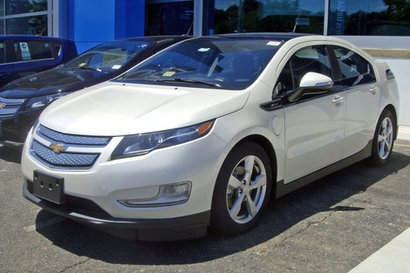
Overall, approximately 8,500 strategically located fast-charge stations, with an average of three plugs each, are needed to provide a minimum level of national coverage for 7 million electric vehicles, the NREL study finds.
Sales of PEVs in the US - which include plug-in hybrid electric vehicles (PHEVs) and all-electric vehicles (EVs) - have surged recently. Most PEV charging occurs at home, but widespread PEV adoption would require the development of a national network of non-residential charging stations. Strategically installing these stations early would maximise their economic viability while enabling efficient network growth as the PEV market matures.
“The potential number, capacity, and location of charging stations needed to enable broad PEV adoption over the coming decades hinge on a variety of variables” said Eric Wood, lead author of the National Plug-In Electric Vehicle Infrastructure Analysis. “NREL’s analysis shows what effective co-evolution of the PEV fleet and charging infrastructure might look like under a range of scenarios.”
Chris Gearhart, director of NREL’s Transportation and Hydrogen Systems Centre added that the study shows how important it is to understand consumer preferences and driving behaviours when planning charging networks.
NREL analysed PEV charging requirements within urban and rural communities and along interstate corridors. For each type of area considered, NREL examined the station coverage needed by early-market PEVs and the station capacity required to satisfy potentially high future demand for electric charging.
The results suggest that a few hundred corridor fast-charging stations could enable long-distance EV travel between US cities. Although many of these early-market stations could be underutilised at first, NREL’s analysis of driving patterns and vehicle characteristics suggests how corridors could be prioritised and station spacing set to enhance station utility and economics.
Compared to interstate corridors, urban and rural communities are expected to have significantly larger charging infrastructure needs. About 8,000 fast-charging stations would be needed to provide a minimum level of urban and rural coverage nationwide. In a PEV market with 15 million vehicles, the total number of non-residential charging outlets or “plugs” needed to meet urban and rural demand ranges from around 100,000 to more than 1.2 million. Understanding what drives this large range in capacity is critical. For example, whether consumers prefer long-range or short-range PEVs has a larger effect on plug needs than does the total number of PEVs on the road. The relative success of PHEVs versus EVs also has a major impact, as does the number of PHEVs that charge away from home.
The research was funded by the Vehicle Technologies Office in the US Department of Energy’s Office of Energy Efficiency and Renewable Energy.
NREL is the US Department of Energy's primary national laboratory for renewable energy and energy efficiency research and development, operated for the Energy Department by The Alliance for Sustainable Energy, LLC.
Image: Chevy Volt
For additional information:

